Pilot CEO Waseem Daher joined Thursday Nights in AI to discuss applications for LLMs in accounting, why developers should consider working on “boring” problems, the defensibility of existing AI startups amid rapid AI development, and why founders should be wary of raising funding at large valuations. Here are our top takeaways…
Key Takeaways
On why Waseem started an accounting startup:
“Accounting is just the beginning for Pilot. I mean, our North Star has always been: ‘How do we find and eliminate pain?’… We started our first company, KSplice, to bring a new piece of technology into the world. We don’t really know anything about the business side, like dealing with accounting, legal, HR, etc., and it had been a very big and very visceral pain for us back then. So now, if we can be the sink for the boring but really important work and give founders back the time to actually focus on making their company successful, then we are, in some ways, driving innovation.”
On why engineers should consider working in ‘boring’ companies:
“Dropbox is a file sync company. That sounds pretty boring. But there was a time when Dropbox was the ‘it’ company in Silicon Valley. Why is that? For one, I think they were working on hard technology problems. And two, there was a really amazing team in place. One of the things Pilot has going for it as a place to work is talent density. The mission of course matters, but what matters more than people think is if you enjoy working with your coworkers, if you have autonomy, if you have agency, if you have an impact. And that’s pretty domain independent.”
On how Pilot has changed due to LLMs:
“There are a few buckets of applications for LLMs at Pilot. Category one is pieces of the process that are today done by a human—and done by a human always means done slowly and inaccurately—that could be done by a computer. What’s changed with the rise of LLMs is that the hardest 20% of work done by a human accountant, you actually get a huge lift by pointing an LLM at it. This is our main focus.”
“Area of investment number two is generative AI-powered product features like a CFO chat bot that can tell me what’s happening in my books. We’ve spent no time here, and that’s because I’m not really convinced that’s what our users want. We have explicitly not invested in things that are cool but don't seem to add real business value for our customers.”
On the defensibility of AI start-ups in the face of AI advancements:
“You have to think about the moat your company has. If the only aspect of your moat is you have something that can produce a capability similar to what you can get with GPT-4, you have a big problem because your secret sauce is available to everyone. If you have some structural advantage, like advantages on distribution or a brand, those things will help you. If a new company started today that had all of the code we'd written at Pilot, I wouldn't be happy about it, but there are also efforts we have made in the community and in the ecosystem that are not trivial to reproduce. I think the moat is the customer relationship and what the customer thinks about you. The power of that moat is probably a function of how good is the customer experience and how sticky the product is.”
On his advice to other founders as a successful 3x founder:
The goal of your company is not to raise investor dollars. I think that fundraising has achieved this interesting status in the minds of founders, where they associate their success with how much money the company has raised. But that is not winning. It just feels like it is because TechCrunch writes about you, and then you speak on panels, etc. Winning is when you build a lasting company, like Google or Microsoft, with a product that people want and are willing to give you money for.
To watch the full conversation, click here. You can also listen to this recording on Spotify. Join us for our upcoming firesides! See the full list here.
Transcript:
This transcript was edited for brevity.
Ali Rohde: This is not Waseem's first rodeo. Waseem is a three-time entrepreneur with two successful exits. His first company, KSplice, was acquired by Oracle in 2011. His second company, Zulip, was acquired by Dropbox in 2014. The same three founders found all three companies: you, Jeff, and Jessica, I believe. There's an expression, I don't know if you guys have heard it: Once you're lucky, twice you're good. Waseem is thrice good. Waseem is truly a serial founder who thinks very much about how to build companies, writes about it, and talks about it. So we're excited to hear basically anything you have to say on building companies, especially in AI.
Q: What is Pilot, and how is Pilot incorporating AI?
Waseem Daher: Pilot essentially is your accountant. We focus on bookkeeping, tax prep, and CFO services, principally focused on high-growth technology startups. And so when you work with us, you're paired with our world-class accounting team. Every month, we get you what you need to run the financial back office for you.
Pilot uses AI through software that we use principally internally to do the work more accurately, reliably, more scalably. And a consequence of doing that is that we can serve lots and lots of companies. So today, we serve about 2,000 startups. It makes us the largest startup-focused accounting provider in the US. And that scale directly translates into benefits for our actual customers. Meaning we've seen the movie before, we have more data, and we can use that to help you run your company more successfully and more efficiently.
The core thesis of the business is, if you look at the work that the accountant does, there's a huge chunk of this work that the computer should do. It should not be done by the human. And yet, at every accounting firm in the world, the work is done in the same way as in 1980: a person is sitting in front of QuickBooks typing a bunch of stuff in. All these advances in capabilities have existed, and all this stuff is now in the cloud. Surely, we can get the computer to do much of this heavy lifting.
And the specific thing we do is look at what the human accountants on the team are doing. What are the sources of error? What are the sources of inaccuracy? What are the sources of things that prevent us from scaling? And we ask, can we get the computer to do some of these steps?
Q: What makes you so passionate about accounting? Are you afraid of missing out on a much larger opportunity?
Waseem Daher: It's interesting because the fact that it is boring is what appeals to me about it. And that sounds, obviously, counterintuitive. The way that we arrived at this problem was that this was a very big and very visceral pain for us in our previous companies. The first company that we did, my co-founders and I were all at MIT undergrad. We were like in a computer club at MIT. It was like peak nerd, and we had this technology one of my co-founders had developed that allowed us to update running Linux systems without rebooting. We had some technology that could, like, go in and modify the Linux kernel while it was chugging along. And we're like, this is cool, like, we think other people should use this. Like, let's do a startup. And we didn't know anything about anything. We had no idea how to run a business. And I think the realization that hits you when you start your first company is, like, Well, you started it for a particular reason. You had some capability you wanted to bring into the world, but there's all this other stuff you have to contend with. There's accounting and legal and HR and IT and finance and insurance. Accounting is kind of just the beginning for Pilot as we think about the 20-year journey.
The high-leverage stuff for every founder or business owner is to build that product or service. And in many ways, if we can be the like, sink for that boring but actually really important work, and give you back the time to focus on making your company successful, in that way, we're an accelerant of all the other stuff. It's a little picks and shovels-y. I think the thing that makes accounting interesting for me is there's a lot of pain here, and that has always been kind of a north star for us, which is like, how do we find and eliminate pain in various ways?
Q: Why should AI engineers work in ‘boring’ companies?
Waseem Daher: Dropbox had acquired our second company, and then we were at Dropbox for about two years, and if you think about Dropbox, like, it's like file sync. That sounds pretty boring. But there was a time, and its best days are probably behind it, unfortunately, but there was a time when it was like the “it” company in Silicon Valley. Why is that? Well, first, I think there are like hard and interesting technology problems. Second, there was just a really, really, really amazing team of smart, talented people who cared deeply and were working hard on this problem.
One of the things that Pilot has going for it as a place to work is the talent density. My experience has been like, yes, of course, the mission matters. But what matters more is, do you enjoy working with your coworkers? Do you have autonomy? Do you have agency? Do you have an impact?
Q: How did Pilot's business change with the rise of LLMs?
Waseem Daher: Sure, I think there are two potential buckets of applications for LLMs at Pilot. Category number one is what are the pieces of the processes that our team does internally today, associated with closing the books, producing the financial statements, doing the taxes, etc. What are pieces of the process that are today done by a human slowly and inaccurately today that could be done by the computer? And there's a bunch of things that seem quite tactical but are, like, you have an invoice, and you want to know what its service period was. GPT's really good at, like, pulling that out or... You have some transactions, and you're trying to figure out how to categorize them.
Ali Rohde: But you were using AI systems for categorizing stuff before. So I'm just curious, like, what, what has changed?
Waseem Daher: So what's interesting about this is the workload today that is being done by the human is, like, hardest 20% of the work. In other words, it's the stuff that the classical techniques couldn't or don't do today. And the nice thing is at Pilot, if the computers know what to do, the computer can just raise its hand and be like, I don't understand this. Can the account manager who works on this account, just do this piece? We can also fall back to the human. So, there are a bunch of tasks that today fall back to the human. And those are tasks that, for whatever reason, The existing stuff we built isn't capable of doing. And we found that on that hardest of workloads, you actually just get a huge lift by, like, pointing the LLMs at it. A big area of investment number one for us is, how do we take these things that are today done by people at Pilot, and how do we have the computer do them, using the new LLMs. Everything I've described is basically invisible to the customer, meaning it's not obvious. And if we're doing our jobs well, you shouldn't really care how it's done. It shouldn't even be clear to you how it's done. It should just be clear that it's correct.
Area of investment number two, where we've spent almost no time, is generative AI-powered product features like a CFO chatbot that is available 24/7 to tell me about what's happening in my books. Presumably, at some point, we will build that, but so far, we've spent almost no time there. I'm not convinced that it's what our users want, meaning it's a cool marketing demo. Like, cool, maybe you could get it on Hacker News or something, or Product Hunt, Twitter, you get some retweets on it, whatever. But I just don't think that that's really a pain that our customers have.
Q: Are you worried that over time, the moat you've created by making all these specialized tools for people will erode as we have more capable AI systems?
Waseem Daher: The capabilities of these tools are obviously increasing at a pretty dramatic rate. Am I just burying my head in the sand on this? I don't know. You'll have to keep me honest. Our perspective is, that if such a capability were to emerge, it is a question of when, not if, who is best positioned to take advantage of it? And if the capability is the result of one of these foundational models that are publicly available, well, presumably, we get it at the same time that everyone else gets it. And so, I guess the question would be. Is there something structural about what we do that causes us not to take advantage of it for some reason? And I think the answer there is no.
I think the question is, could someone else develop it using their proprietary data set or techniques or whatever? And, of course, there's certainly a possibility, but I think we have one of the advantages of seeing a lot of the data just by what we do with our customers. Again, I don't think it's an unassailable fortress, but this goes back to something we were talking about earlier, which is, in general, as you think about all this new stuff, does it structurally benefit the upstart? Or does it structurally benefit the incumbent? And I think this is one of these weird cases where the benefit mostly does accrue to the incumbent. I think everyone has access to the same stuff. If you could do it on a weekend, using the ChatGPT API, someone else presumably also could.
Q: Do you think the ‘middlemen’ companies can maintain their moat?
Waseem Daher: There was a tweet about this other day, where Paul Graham was like, anyone who calls something a GPT wrapper is an idiot. And then I was like, oh god. I've been using that term. So I might have to revise my answer here. Now my perspective is, that you have to think about what the moat your company has. If the moat is simply, you were using GPT3, or you had something that could produce a capability that is similar to what you could get with GPT 4, you kind of have a pretty big problem because now, your secret sauce is available to everyone. Now, if you have some structural advantage, like on distribution or a brand, then yes, those things will help you.
So it is not enough for someone else to have your exact same technology to kill you. Like, if a new company started today that had all of the code we'd written at Pilot, I'd be concerned about it. Certainly, but there are efforts we have made in the community, and in the ecosystem with our partners that are not trivial to reproduce.
I think the real moat is the customer relationship and what the customer thinks about you. And how powerful that is probably is a function of how good is the customer experience. What would make you happiest is their strong network effects, like, once you use the thing, you can't switch something. So if you use some LLMs and you also have some network effects, I feel like you're pretty good. But, you know, if your sole differentiation was, like, we had the ability to generate text that satisfied certain properties, or, you know, we could generate funny images or whatever, and now anyone can do that, I would definitely be more nervous.
I think Your customer is using your product or service for some reason. They have some itch they're trying to get scratched. If the itch can be more easily scratched elsewhere, yeah, I think that's a big problem for you.
This is an example that was before all of your times, probably, But, it's like Netscape versus IE. Microsoft just put IE in the operating system and it's right there. It didn't matter if the other browser was better the convenient thing that's gonna scratch your itch is just right there, so you're gonna use it. And so, if I was going to... App XYZ to make use of some capability and then suddenly become a feature of Notion or Gmail or a feature of whatever, Then I’ll probably stop using the App XYZ.
I think that's why these incumbents pose such a threat to upstarts in the space. If they can power the thing the same way smaller startups are powering the thing that’s pretty scary.
Q: What are the strengths & weaknesses of generative AI you experienced?
Waseem Daher: Well, the place that it doesn't work so well is math. And I think that's a known limitation. A silly example of this is... if you Google, like, 143 plus 2,472, there probably is a website that, in fact, like, has those two numbers and has the answer. But, it just shows you a little box with a calculator. Sometimes it's just better to just do the calculation. So, there are places where the answer is very straightforward, and you just, want the structured programmatic thing. And especially in accounting, the financial statements you produce. They're all related to each other mathematically. You want all those constraints to be maintained.
Ali Rohde: Don't guess what goes into EBITDA.
Waseem Daher: Right. Don't guess at what my bank balance is. Just tell me what it really was. Not what the first seven tokens suggested that the eighth token might be. So, when it's super straightforward, you don't want to use the LLM. And we don't, because we built all this stuff to do it pre-LLM.
The places that it's really good are the places that have some ambiguity. Interpreting any human input, trying to discern what things are similar. One of the boring but important steps in producing your financial statements is understanding where you spend your money and categorizing it according to the categories that appear on your income statement. For example, we might see a transaction from Lyft. And this is not a good example, because obviously, we know where Lyft goes. But you might see a transaction from a given vendor that we've never seen before. And you're like, cool, where should I put that? Well, there isn't really a structured way of doing that, because we haven't ever seen that particular vendor before. Then you can ask the LLM, What vendors like this have I previously seen, and where did those go in my contrived Lyft example? Well, we saw a transaction at Uber, you know, Uber went into ground transportation. Therefore, Lyft should also go into ground transportation. And like the act of doing that comparison is not like where the AI comes in or the AI comes in is actually in the semantic like The word Uber is near the word Lyft, or really I should say, the paragraph that describes this transaction is semantically, close to the paragraph that describes this other transaction in this complicated multidimensional space. Those are places where it's like, wow, that's good.
Another LLM strength is in tasks where human is the source of the error. It is basically as good or better than the human.
Q: What's the most contrarian opinion that you hold when it comes to AI?
Waseem Daher: Usually I'm like a bit of a naysayer and kind of a downer. I'm definitely an optimist but I'm quite grumpy about new stuff usually.
Ali Rohde: You're a grumpy optimist.
Waseem Daher: I'm a grumpy optimist, that's right. Like, I was very, and this is on trend now so it's not cool if I say it, I was very anti-crypto when crypto was big. But I'm actually kind of an AI true believer in the sense that, obviously, this will change a lot. I don't think that the robots are going to take over anytime soon or that AGI will be enslaving humanity but I think there are going to be a lot of interesting and boring business applications that are dramatically accelerated by AI.
I think there's going to be some scary stuff like misinformation and, I don't know, falling in love with your AI robot or whatever. There will be certain aspects of living in, you know, 2040, whatever, where you probably would have been happier in 2020, whatever, but yeah, I don't know.
Q: You’re a successful three-time founder, what is your advice to other founders?
Waseem Daher: It's like a super, super tough fundraising market out there. I think that is ultimately a good and healthy thing, in the sense that it will force, rigor and discipline among everyone in this room. And if it doesn't, well then, you know, your companies will just stop existing. When we started our first company, it was June 2008, during the financial crisis, we talked to Foundation Capital, I think. This was in Boston and we excitedly had the meeting, and then we emailed them to follow up, and see if they wanted to invest or whatever. I'm paraphrasing because again, this was 20 years ago. He was like, look, normally we would just string you along with like a slow no, and then eventually pass, but it's 2008, we're not writing any checks, we'll just tell you no. I appreciated that.
We ended up bootstrapping our first startup. And in doing that, I think it engendered a super healthier respect for the value of the dollar. If we wanted to spend money, we had to get more customers first. There was not, a magic source of funds that was unrelated to providing value for our customers. It contorted us in some weird ways, but it caused us to be laser-focused. How do we get more revenue? How do we get more customers? How do we build the thing that our customers really want? And I think that same energy is kind of pervasive, in the ethos at the moment. And I think that's super, super, super good and healthy because it keeps you honest. The problem with investor dollars is they're correlated with someone being interested in your thing, but they're not the goal of the company. The goal of the company is to build a thing that people want and are willing to give you money for and the way to validate that you've done that is to have people give you money for the thing that you've built. And everything else is just kind of like a proxy signal for that.
I think that fundraising has achieved this interesting status in the minds of founders where they associate their success with how much money the company has raised. Fundraising is kind of bad. It's like a necessary evil. If you could build, your giant billion-dollar company, and you didn't have to raise any money, that's even better. Again, the goal is not necessarily wealth creation. Why is Larry Ellison so rich? Why is Bill Gates so rich? Well, it’s because they didn't raise Venture Capital. True, it was also a different time, but the point is that fundraising is a necessary evil. You do it because you believe that taking on the dilution, taking on the capital, and giving up the ownership causes you to move faster and, therefore, unlock more value. But it's not winning. It just feels like it is because TechCrunch writes about you, and then you, speak on panels or whatever. But that’s not the point. The point is that you gotta build the thing that people want.

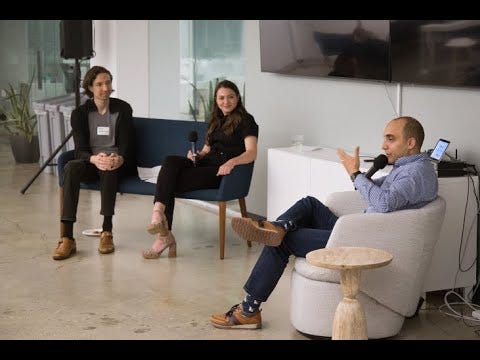








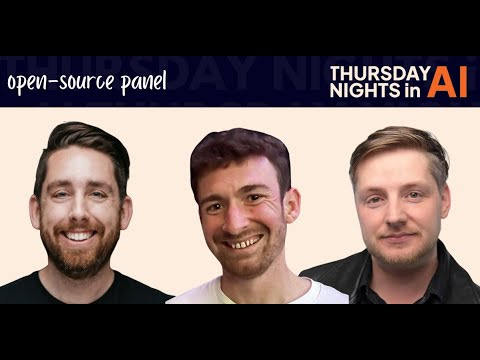
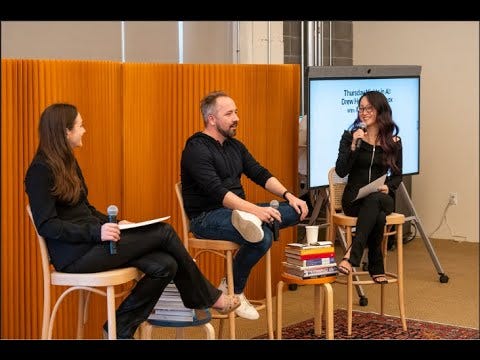

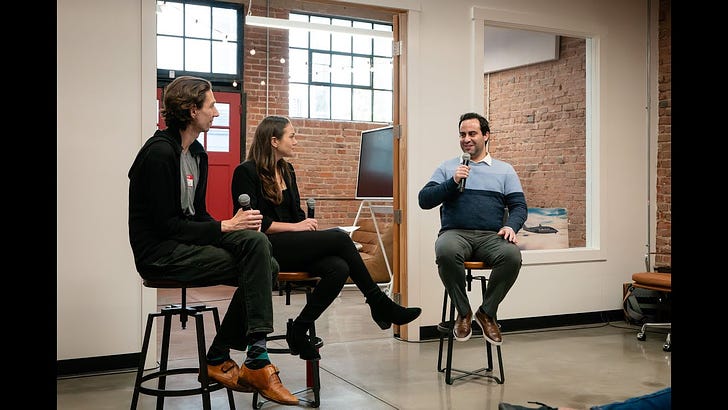
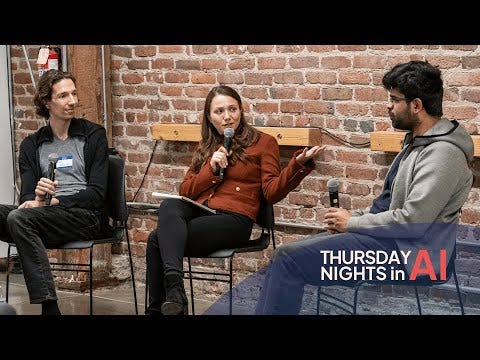
Share this post